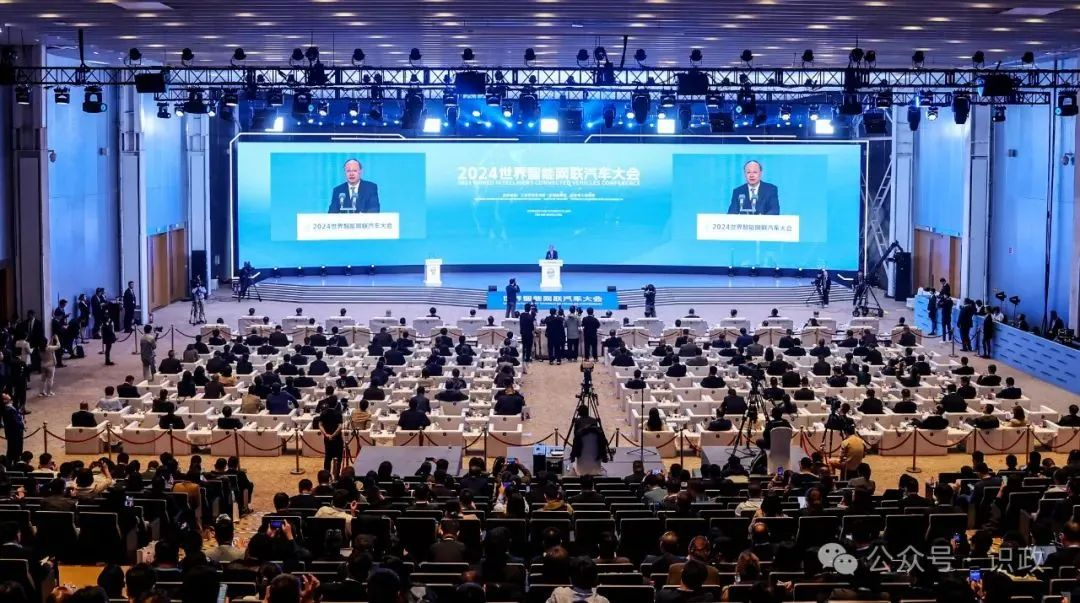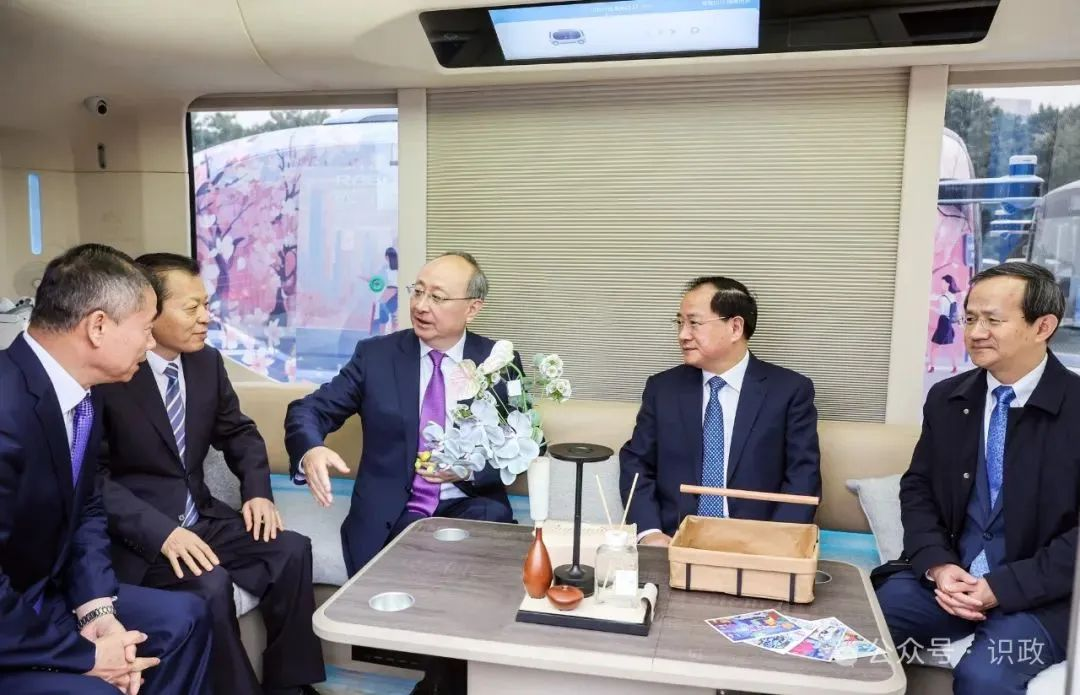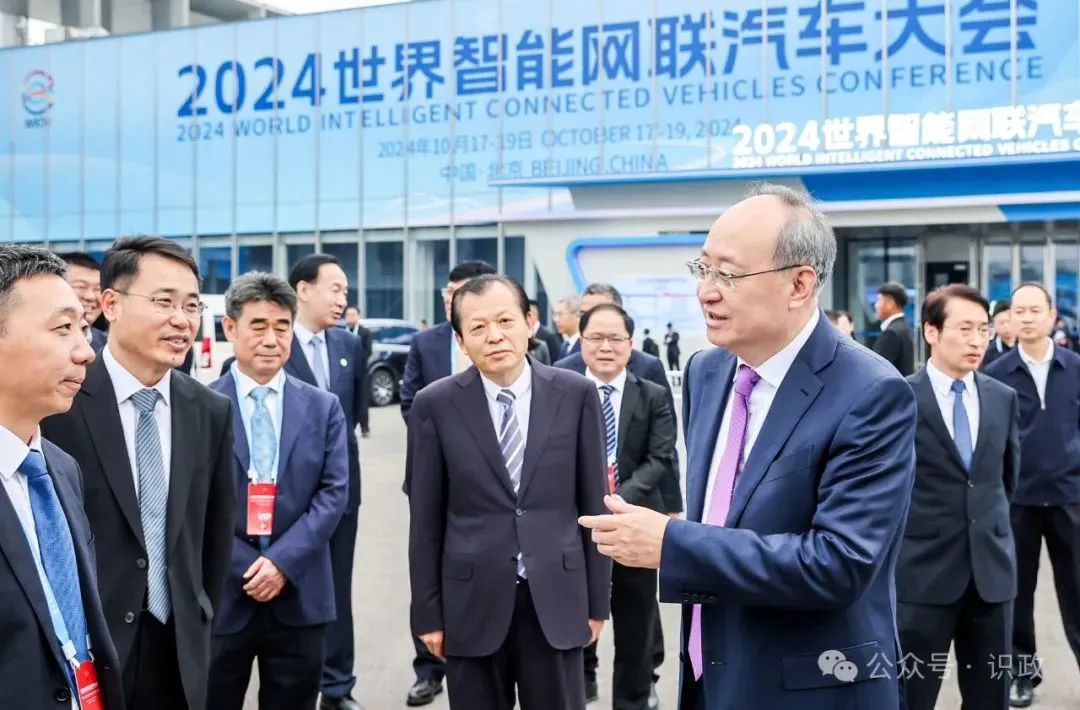On the morning of October 17, the 2024 World Intelligent Connected Vehicles Conference (WICV 2024) opened at the Beiren Etrong International Exhibition & Convention Center. Attendees included Yin Li, Member of the Political Bureau of the CPC Central Committee and Secretary of the CPC Beijing Municipal Committee; Wan Gang, President of the China Association for Science and Technology (CAST); Jin Zhuanglong, Secretary of the Party Leadership Group of the Ministry of Industry and Information Technology (MIIT); Liu Wei, Secretary of the Party Leadership Group of the Ministry of Transport (MOT); and Yin Yong, Deputy Secretary of the CPC Beijing Municipal Committee and Mayor of Beijing.

In his address, Yin Li welcomed the attendees and expressed gratitude for their long-standing support for Beijing’s development. He noted that with further advancement of information technology and in response to global energy challenges, the automotive industry is accelerating its transition toward greener and smarter solutions. He highlighted that the CPC Central Committee, with Comrade Xi Jinping at its core, prioritizes the development of the automotive industry. China is seizing the opportunities presented by the transformation and upgrading of the automotive industry to develop intelligent connected vehicles (ICVs), marking a leap in the size of the industry. As the capital, Beijing boasts distinct advantages in the automotive sector, particularly in ICVs. Going forward, the city will move faster to build itself an international innovation center and a model for global digital economy, develop new quality productive forces, and create a favorable environment for the global ICV industry. Beijing is eager to work with all stakeholders to drive innovation of core technologies in key areas, establish a technological innovation consortium for ICVs, and accelerate technological breakthroughs in key areas. Yin called for joint efforts to elevate the industry development by further improving the industrial and supply chains in the Beijing-Tianjin-Hebei region and beyond, increasing the provision of intelligent computing power, and expediting product upgrading, so as to cultivate world-class industrial clusters in the ICV sector. He emphasized the importance of working together to build a sound ecosystem in diversifying application scenarios, and enhancing support in terms of talent, funding, and policy. Through accelerating local legislation, Beijing aims to establish ICV-related standards promptly, thus fostering a market-oriented, law-based, and accessible business climate in keeping with international standards. Lastly, he expressed hopes for deepening international exchanges and cooperation, striving for an open, fair, and non-discriminatory international trade system that facilitates cooperation between Chinese and foreign automakers, thereby achieving shared development and benefits.
Jin Zhuanglong noted that the automotive industry is rapidly transitioning towards electrification, connectivity, and intelligence, making it a crucial force in advancing new industrialization and developing new quality productive forces. The MIIT will thoroughly implement the decisions and arrangements of the CPC Central Committee and the State Council, ensuring both high-quality development and security. He outlined plans for developing the ICV industry, stressing the importance of vehicle-road and hardware-software coordination. This aims to accelerate China’s progress toward a powerhouse in the automobile sector. To this end, efforts must be made in integration and innovation to encourage the co-establishment of platforms for data sharing and model training in autonomous driving. Application scenarios should be diversified. Further implementation of the pilot projects of vehicle-road-cloud integration will boost the development of connected facilities with unified framework and standards, facilitating installation of in-vehicle connected terminals in a wider scope. Standards and regulations need to be enhanced, including revising laws and regulations on road traffic safety and insurance, as well as establishing a robust regulatory system for high-level autonomous driving. Additionally, he highlighted the necessity of deepening open cooperation, emphasizing the importance of integrating into the global industry system, enhancing global cooperation on standards and regulations, and creating an enabling environment for the global growth of the industry.
Liu Wei remarked that the transportation sector is now deeply integrating with strategic emerging industries, such as the next-generation information technology (IT), artificial intelligence (AI), and new energy. The MOT is committed to studying and implementing General Secretary Xi Jinping’s important statements on transportation and technological innovation. This includes adhering to innovation-driven approaches and developing smart transportation and logistics. Efforts are also ongoing to promote the integration of new IT and AI with the transportation sector, strengthen top-level design, conduct pilot and demonstration programs, and deepen international cooperation. Amid a new round of technological revolution and industrial transformation and given the rising public expectations, Liu emphasized the need to embrace technological progress with a more proactive attitude, promote development ina secure and practical manner, and enhance international cooperation with a more open stance. He expressed readiness to work with various sectors to advance new technologies and industries, such as autonomous driving, and to jointly build a sustainable transportation system that is safe, convenient, efficient, green, economical, inclusive, and resilient, thereby accelerating the development of China into a transportation powerhouse.

Discussion on Industry Development

Learning About Latest Advancements
At the opening ceremony, Wan Gang delivered a keynote speech, and Liew Chin Tong, Deputy Minister of the Malaysian Ministry of Investment, Trade and Industry, presented a video address. Ten major global breakthroughs in ICVs were also released.
Officials from relevant departments of the central government and Beijing Municipal Government, diplomatic envoys from various countries, representatives from international organizations and institutions, experts, scholars, and heads of notable companies in the ICV industry were also present.
(Written by Qi Mengzhu, Liu Feifei, and Dai Bing)


